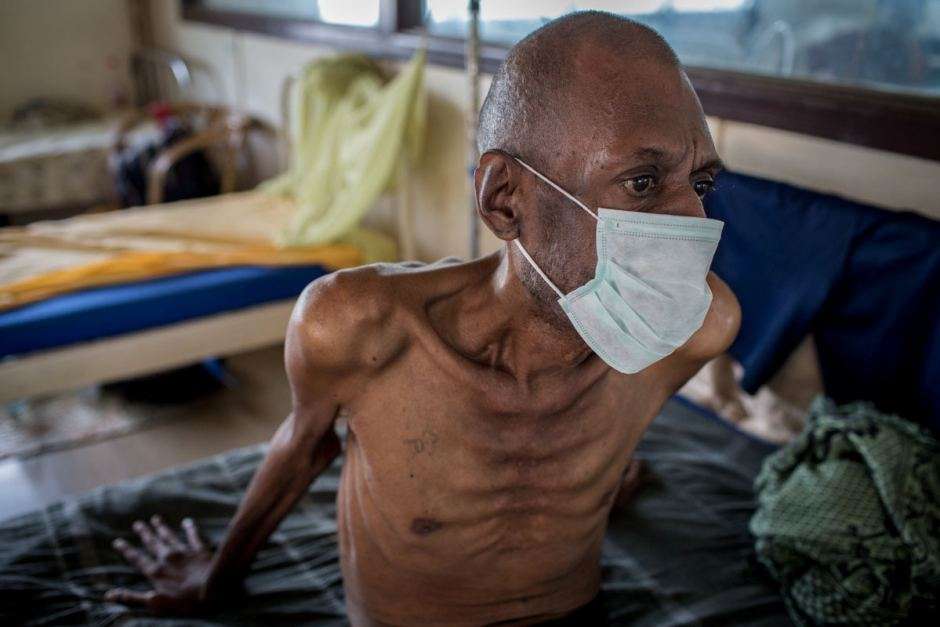
Tuberculosis Cases Increases Due To Malnutrition And High Alcohol Consumption
Malnutrition is a condition that results from eating a diet in which nutrients are either not enough or are too much such that the diet causes health problems. It may involve calories, protein, carbohydrates, vitamins or minerals. Not enough nutrients are called under nutrition or undernourishment while too much is called over nutrition.
Malnutrition is often used to specifically refer to under nutrition where an individual is not getting enough calories, protein, or micronutrients. If under nutrition occurs during pregnancy, or before two years of age, it may result in permanent problems with physical and mental development.

Extreme undernourishment, known as starvation, may have symptoms that include: a short height, thin body, very poor energy levels, and swollen legs and abdomen. People also often get infections and are frequently cold. The symptoms of micronutrient deficiencies depend on the micronutrient that is lacking.
Scientists from Boston University School of Medicine (BUSM) in the US and Jawaharlal Institute of Postgraduate Medical Education and Research (JIPMER) in Tamil Nadu found a striking link between malnutrition, heavy alcohol use and tuberculosis (TB) in southern India.
According to the reports, 10.6 million cases of TB occur annually in the world and India accounts for 27% in it. The reports showed that malnutrition attributes to more than 61% of TB cases in women, while alcohol was responsible for up to 75% of TB cases in males.
Scientists from both the universities collaborated on a large cohort study of TB cases, called the Regional Prospective Observational Research for Tuberculosis (RePORT). The study, published in the journal PLOS ONE, aims to identify markers in the blood that predict whether an individual will fail TB treatment and whether their household contacts will develop TB.

“Alcohol use in men and malnutrition are helping drive the TB epidemic in Southern India. Reducing the TB burden in this population will require efforts to mitigate these risk factors,” said Sonali Sarkar, from Jawaharlal Institute of Postgraduate Medical Education and Research, in Puducherry.
Even alcohol use results in poor TB treatment adherence and worse TB outcomes, including death, while closer integration between TB control programs and alcohol treatment programs may improve outcomes, the researchers noted.
This study comes on the heels of the World Health Organization’s (WHO) strategy that encourages research into country-specific TB research plans. “We hope this demonstration of how malnutrition and alcoholism are driving the TB epidemic in India will help local TB programs target resources to reduce the local burden of TB,” said Natasha Hochberg, assistant professor at BUSM.
“The Indian government has recently released guidelines for the nutritional care of TB patients; we anticipate that our findings will bolster their efforts and renew the emphasis on addressing malnutrition to prevent TB,” said Hochberg.
The study aimed to identify markers in the blood that predict whether an individual will fail TB treatment and whether their household contacts will develop TB, the researchers said. The researchers also note a scarcity of alcohol treatment programs in the Puducherry and Tamil Nadu region and that heavy alcohol use has an impact on TB treatment outcomes.
Also Read: Swine-Flu: Lab Tests To Be Available For Non-Hospitalised Patients